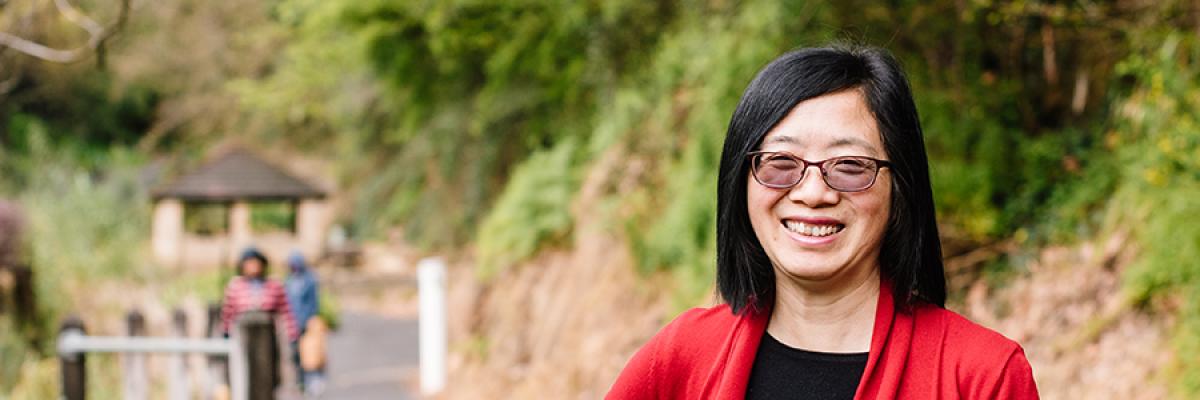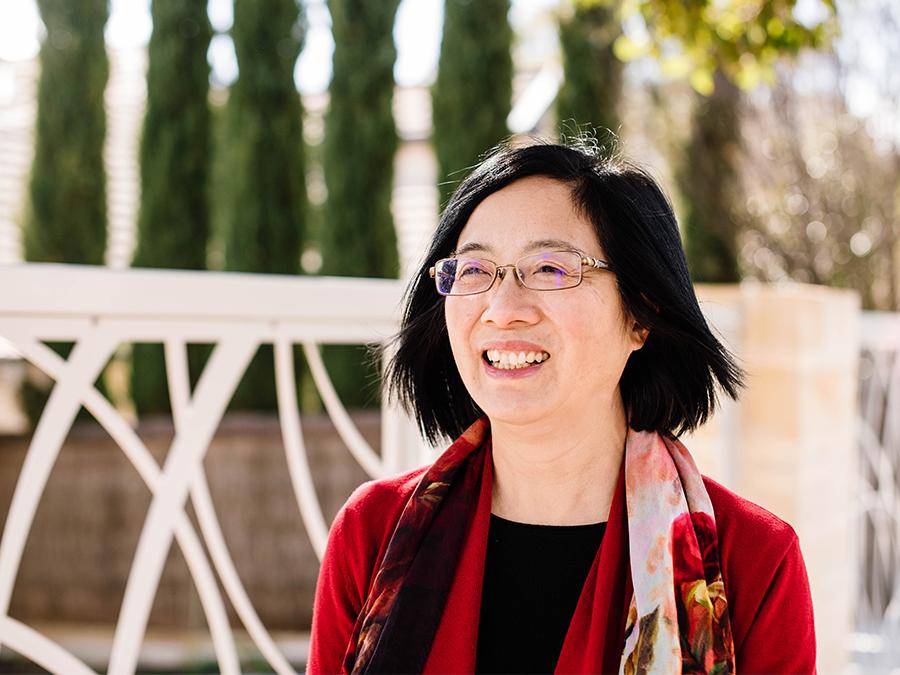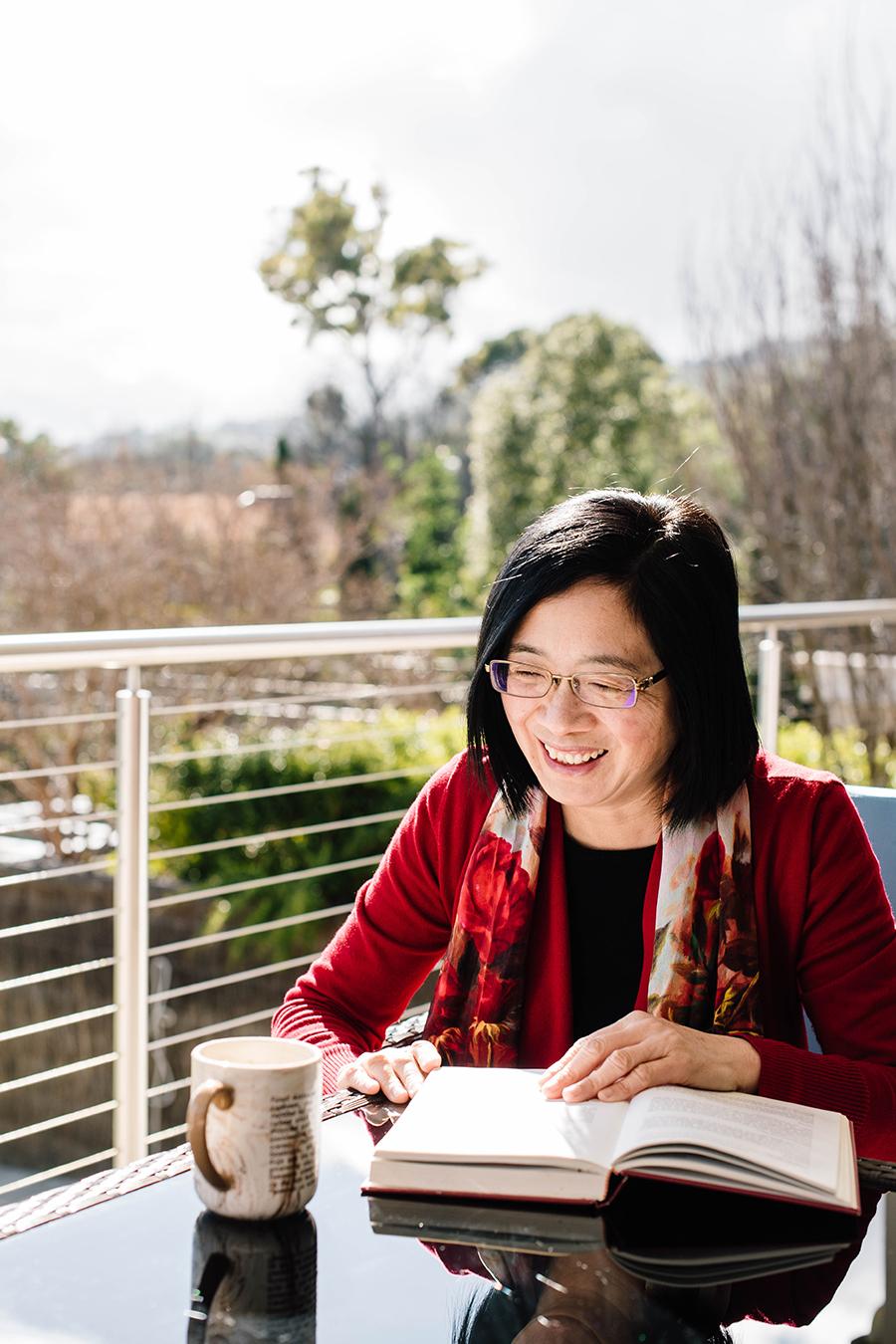Dr Yu makes X her mark
Escaping Mao’s Cultural Revolution to pioneer her own in genetic pathology.

Terror and tragedy pathed the way for Dr Sui Yu to become Australia’s first female genetic pathologist.
From her ninth floor office in the Women’s and Children’s hospital, the picturesque view Dr Yu now enjoys is far from the atrocities she experienced growing up in China during Chairman Mao’s Cultural Revolution.
“The discrimination I experienced in China was unbearable so I made the decision to leave. I am very grateful that I built my career and my life in a lovely country like Australia. Sometimes adversities can lead to something very good, you just never know.”
And something good did happen. Dr Yu became a pioneer in genetic pathology, a field on the cutting edge of medicine where genetic diseases are diagnosed by testing patient samples for DNA abnormalities.
As Head of the Department of Cytogenetics and Molecular Genetics at Women's and Children's hospital Dr Yu works full-time and then some. Her team focuses on identifying the genetic causes for paediatric and reproductive related disorders and, for couples who have trouble conceiving, screening chromosomes and DNA for subtle abnormalities for children with intellectual disability.
“We provide a high quality service to clinicians and to the patients. As a genetic pathologist, my passion is service quality, clinical risk management and training the next generation of genetic pathologists,” said Dr Yu.

“I am very grateful that I built my career and my life in a lovely country like Australia. Sometimes adversities can lead to something very good, you just never know.”Dr Sui Yu
Sitting in her office, surrounded by case files, research papers and a map of the human genome, Dr Yu is confident and in her element. But the journey to the top of her profession was long, hard and marked with torment.
The Cultural Revolution took Dr Yu’s parents from her. The pseudo-medical Chicken Blood Treatment which injected rooster blood into patients and was endorsed by the Communist Party of China, was the likely cause of Dr Yu’s mother’s death. Her father was falsely accused of being an anti-revolutionary and sentenced to life imprisonment.
Dr Yu was raised by her grandmother and was discriminated against as the daughter of an anti-revolutionist. To support her grandmother, younger sister and herself, Dr Yu worked in a tobacco factory, a candy factory where she hand-wrapped the lollies, and on construction sites.
While working in physically demanding jobs, she found solace in books and studies. After the Cultural Revolution, Dr Yu was lucky enough to pass the first national matriculation exam and was offered a place at Huangyang University to study medicine.

Dr Yu migrated to Australia in 1988. In 1989, she enrolled as a PhD candidate, under the supervision of Professor Grant Sutherland, at the University of Adelaide to work on the molecular basis of the Fragile X syndrome. Fragile X syndrome is a genetic condition caused by genetic mutation of the FMR1 gene that causes intellectual disability, behavioural and cognitive impairment in subjects affected by it. The DNA change that causes the Fragile X syndrome was a scientific mystery and there was strong international competition to discover the molecular basis of Fragile X.
For the Adelaide team working on the discovery, one of the bottle necks was generating a map around the Fragile X region.
“I was working on this map before and after my maternity leave. I’d draw a line on the paper and try to place the restriction enzyme sites on it to generate a map but it did not make sense.
“After a few months working on it without any progress, one night I had a dream about this line I drew, it was dancing and the ends joined together. And I remember thinking to myself, ‘this is a dream but if it’s a circle, not a straight line, it might just work.’
So, I got up immediately and started working on the map. When I mapped all restriction enzyme sites in a circle, it worked perfectly.”
“The Adelaide team was then able to narrow down the Fragile X region to a stretch of DNA which is greatly elongated in patients with Fragile X syndrome. We submitted our discovery to Science, the top journal for reporting significant scientific discoveries, only 13 days ahead of the competing French research group.
“It was a great feeling to win the race and discover something no one else knew. This was the prime of my research career and I am proud of my contribution to science,” said Dr Yu.
“Each of my boys is a milestone for me. I had my eldest son when I was doing my PhD and my paper was dedicated to him. I was on maternity leave with my second boy when I was studying for my medical qualification in Australia. For my third son, I was doing my pathologist training.”Dr Sui Yu
For Dr Yu, it was then a natural progression to a career as a genetic pathologist. But first, she had to qualify as a medical doctor in Australia. After having her second child, maternity leave gave her an opportunity to prepare for the notoriously difficult clinical exam set by the Medical Board of Australia to prove foreign doctors meet national standards.
“Each of my boys is a milestone in my career. I had my eldest son when I was doing my PhD and my paper was dedicated to him. I was on maternity leave with my second boy when I was studying for my medical qualification in Australia. For my third son, I was doing my pathologist training.”
It’s been more than 30 years since Dr Yu migrated to Australia, and she has left behind the memories from her traumatic youth in China.
“My boys have all heard the stories of my youth so they don’t take things for granted and understand that not everyone is as lucky as we are in Australia. Being able to study, build my career and raise my children in Australia is a true blessing.”
Story by Tusha Bhatia
Photos by Meaghan Coles
